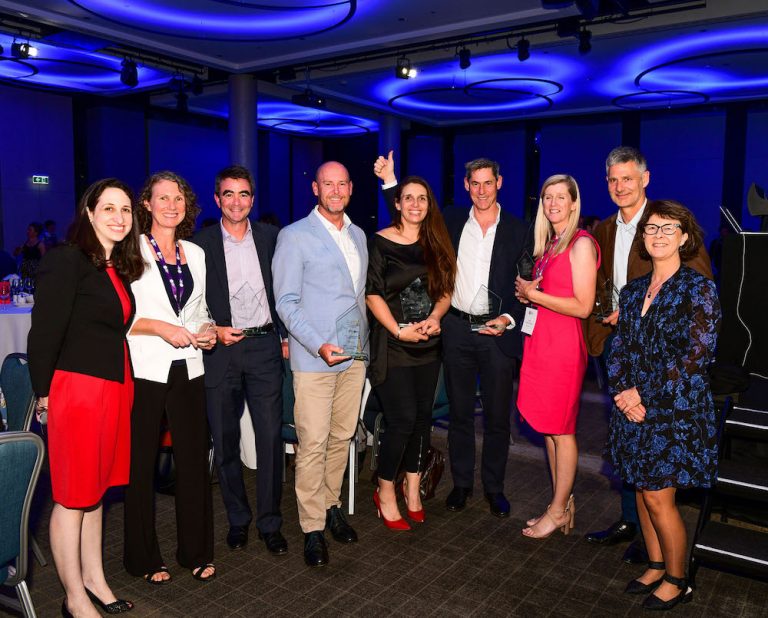I want to reframe the crisis as an opportunity, for a reset.
I count myself lucky. While the bulk of my client-work has been put on hold, I have my health. Plus, I can write articles, and record podcasts from the comfort of my apartment. A privilege my friends in hospitality and health-care don’t have.
But… I don’t buy into the breathless claims that ‘everything will be different’ on the other side. I think the speed with which we adapted to isolation and shut-down businesses, will be mirrored in the speed with which we return to normal.
Having said that, we will adopt a ‘new-normal’.
And as always, it’s up to us to create the future we want, with our actions today.
I see two areas, where important change has been happening in past years, and where progress will be accelerated after this crisis has receded:
- Sustainability will be defined by resilience, and it will become the core of decision making
- Financial advice, and investing in general, will become more holistic to encompass factors beyond just the share-market
1. The future of investing is sustainable
The word ‘sustainable’ has become a buzzword, which dilutes its meaning.
To me, sustainable simply means something is in balance, for the long-term.
Sustainability is regenerative, not extractive.
Sustainability creates more than the sum of its inputs.
Sustainability is a company that operates within an eco-system, rather than simply within its quarterly earnings report.
And… all of this adds up to resilience.
In a post-covid19 world we will embrace the reality of the unknown.
This pandemic has jolted us out of our consumerist-stupor, to appreciate that global supply-chains can easily be cut. That health-care is one of our most valuable resources. And that low-wage workers have a huge impact.
Across Australia there isn’t a corporate board-room, or small-business dining-table, that isn’t considering how long they can survive with their doors closed, or what expenses they can cut. This goes beyond strategy and planning, this is survival.
And only a crisis of this magnitude could bring such deep introspection.
The result will be the birth of a new mindset.
A resilience mindset.
Big issues like climate change loom large on the horizon, and the reality of uncertainty is suddenly clear.
We can’t plan for every outcome, but we can build with a foundation of adaptability, sustainability, and resilience.
2. Financial advisors need to rebuild trust
It’s a question I get asked a lot: ‘Can you recommend a financial advisor?’
And it’s one that has become a lot easier to answer as the whole industry embarks on a major overhaul.
The Royal Commission uncovered a deep rot of conflicts-of-interest that bordered on corruption, and the result has been a suite of new rules and regulations. Some will make life harder for advisors, but there’s no other way. It’s the first step in returning people’s trust.
And nothing is more important in the relationship between a client and an advisor, than trust.
As I grow older, and hopefully a little wiser, I see the huge folly in not investing in professional assistance. Whether it be a personal trainer, or a web developer to build a website, or a mechanic to fix that whirring sound in your car. The costs of battling to do it yourself are always far greater than the cost of hiring the professional. And the results are always second rate when you try to do it yourself.
The same goes ESPECIALLY for financial advice.
Amid a crisis where anxiety is high and finances are being squeezed, we need advisors more than ever. This is a huge opportunity for the new breed of financial advisors to stand-up tall and make a clear pitch.
They need to be transparent about fees, honest about commissions from fund managers, and to state the outcomes they want to achieve for us, their clients. Even if that means they’ll be held to account when the results are in.
I use the word ‘outcomes’ here in the same context as it’s used in Impact Investing. It’s not simply the profit and loss figure that matters, it’s about more than returns.
It’s about how you positively impacted someone’s life.
By helping people understand their options around ethical and sustainable investing, for example, advisors can go deeper for their clients. And as issues like climate change and gender diversity prove themselves to be major risk factors for our investments, they’ll hopefully help them make money along the way.
I’m not sure how this kind of advice is dealt with in the new rules, but I’m digging deeper.
By aligning someone’s investments with their values you build a deep connection between their work, their bank account, and their portfolio.
But that’s just the beginning.
We’ve seen personal trainers become life coaches, and chef’s become health advisors.
Once trust is built, financial advisors have a huge opportunity to expand their service offering for their clients.
Personally, I’m eager to find a financial advisor who can do it all.
Someone that can sort through the alphabet soup of sustainable funds on offer, but also, someone who can advise me on saving for a house, general budgeting, small business tax issues, and whether I should top-up my super.
If I trust you, I’ll hand over the reins, and then it’s up to you to bring me consistent value.
New connections, deeper connections
While I don’t think the post-Corona world will be radically different, I do think we’ll have built deeper connections.
In times of adversity we’re suddenly more honest—with others, and with ourselves.
When the tide goes out we do see who’s swimming naked, but we also see who’s got our back. Who’s calling to check in on us.
And we see which companies rise to the occasion, to help their communities with empathy and honesty.
That’s where my energy’s going. That’s what I’m investing in.
—————————————————
If you want to go deeper, I discussed this article with Cory Ames over on the Grow Ensemble podcast, have a listen here.





